From pharmacy compounding practicals to a career in drug development – Dr Otilia Koo’s story
Do you remember the challenging compounding practicals you did as a pharmacy student? For Dr Otilia Koo (Class of ’97), it sparked her interest for pharmaceutics and drug development, which became the career path she pursued with passion. Today, she is a recognised leader in the pharmaceutical sciences who has bridged small molecules, biologics, and cell therapies. At Bristol Myers Squibb (BMS), Dr Koo led the Global Product Development and Supply Program Management and was an integral part of developing Evotaz® and Ximency™ for the treatment of HIV/AIDs and Hepatitis C. Dr Koo gives back to society by serving on the US Pharmacopoeia (USP) Council of Experts and in the American Association of Pharmaceutical Scientists (AAPS), where she was elected in Oct 2023 to Fellow status in recognition of her professional excellence and impact on global health. Presently, she is working at Novo Nordisk leading the Portfolio Management in Enabling Technologies.
Read on to find out more about Dr Koo’s inspiring journey in drug development.
Hi Dr Koo, thank you for joining us in this issue of PharmConnect. Could you share what motivated you to pursue further studies (Masters, PhD)?
Dr Otilia Koo (OK): After graduation, I wanted to continue my passion for drug delivery and pharmaceutical technology, where I feel that we all can contribute to make a difference in how patients experience their medicines and find answers to unmet medical needs. Thus, I decided to return to NUS Pharmacy for a Masters in Pharmaceutics. After my Masters, I decided to pursue my PhD in a different area of biopharmaceutical sciences at University of Illinois at Chicago (UIC). Looking back, these different fields of pharmaceutics in my Masters and PhD later enabled me to be well-rounded in my considerations on drug development in the pharmaceutical industry.
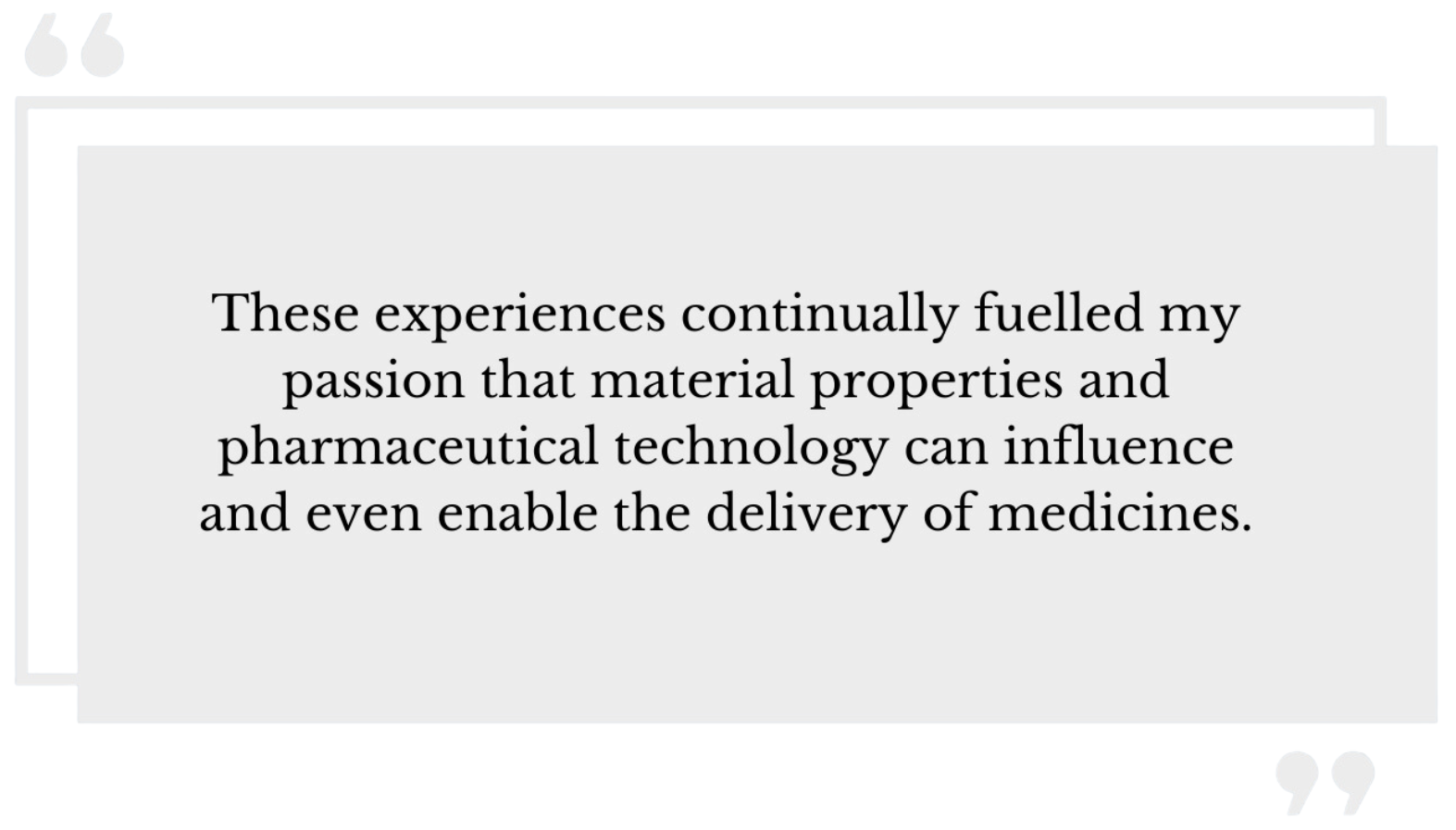
Your PhD and specialization are in the area of pharmaceutics. Could you share more on which area of pharmaceutics and how you discovered this passion?
OK: I chose pharmaceutics among the different pharmacy specialties as early as in my undergraduate studies because it is broad enough to allow me many options to pursue my passion. I was fascinated as a student, about the 21 different emulsions that we had to prepare in Prof Lucy Wan and Dr Chan Lai Wah’s lab classes. Some of them can be technically difficult and needed detailed attention to each of the multiple steps in order to prepare successfully.
In my Honors project, I worked with Dr Lim Lee Yong on gamma irradiation effects on chitosan, which then, was a relatively new biomaterial to characterize, and it later became used in many applications as excipient, wound dressings and drug delivery aid. When deciding to pursue pharmaceutics in my Masters, I chose to join GEA-NUS with Dr Paul Heng as my advisor. He gave me the challenge of determining which properties of microcrystalline cellulose influence its performance during extrusion-spheronization, a process of preparing spheres for drug delivery. After studying 7 different grades of microcrystalline cellulose that provided a range of properties, we published our conclusions that bulk density was most critical in determining how microcrystalline cellulose round up during extrusion-spheronization.
For my PhD with Dr Hayat Onyuksel at UIC, I designed a phospholipid-based micelle that contained a targeting peptide for enhanced delivery of camptothecin, a poorly soluble and unstable drug molecule to areas of inflammation in rheumatoid arthritis. These experiences continually fuelled my passion that material properties and pharmaceutical technology can influence and even enable the delivery of medicines.
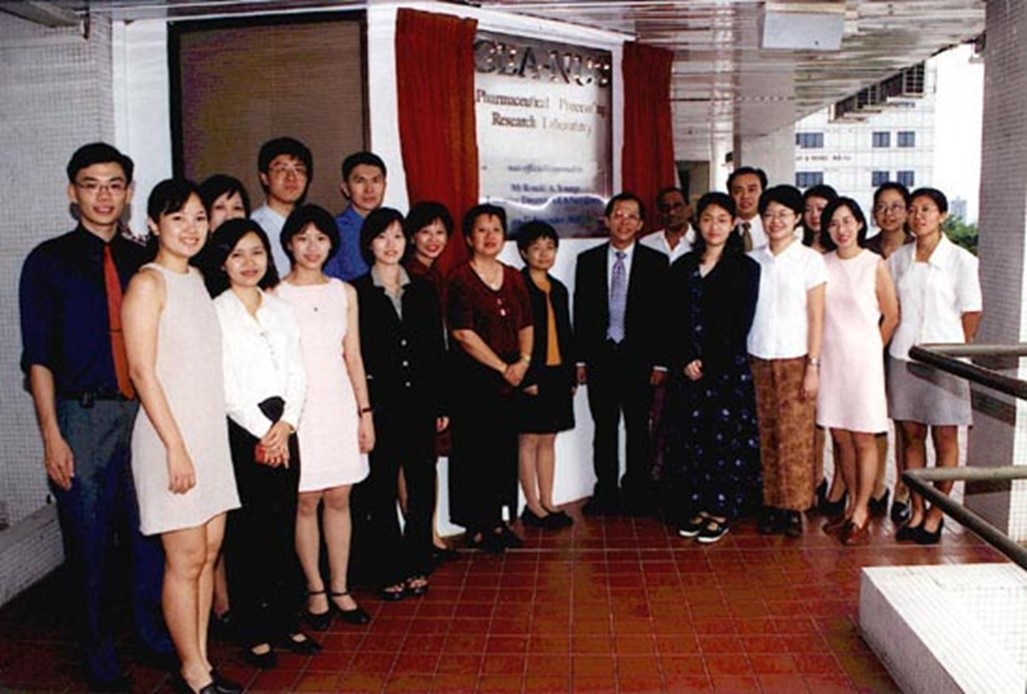
Group photo with members of the GEA-NUS lab in 1998
Can you describe briefly the work you did during your 18 years at Bristol Myers Squibb (BMS)?
OK: I held a number of different roles at BMS. I started out in late-stage commercial solid dosage formulation, and was the first inventor of a bilayer tablet formulation product that was commercialized for the treatment of HIV/AIDS. I then become a matrix leader for up to 20 BMS small molecule and biologics Chemistry and Manufacturing Controls (CMC) development. Subsequently, I had the opportunity to lead the Strategy and Business Operations of Cell Therapy Development & Operations and contributed to the launch of two BMS cell therapy products in 2021.
In my last role, I led the Program Management team of the Global Product Development and Supply organization, and together, we manage portfolios, programs and projects globally in the manufacturing and supply functions and sites.
In 2024, I am starting a new career at Novo Nordisk leading the Portfolio Management in Enabling Technologies. I will be continuing my passion in drug development and hope to contribute to new medicines for unmet medical needs.
How has your Pharmacy education helped in your career journey?
OK: My Pharmacy education has given me exposure to a broad range of areas in pharmacology, chemistry, physical pharmacy and even in retail and compliance. These multi-functional aspects are all relevant to drug development. Additionally, we had to be able to manage many varied areas at the same time, which is very relevant in the day of the life of a pharmaceutical scientist.
Outside of my work for BMS, I have spent the past 8 years volunteering with US Pharmacopoeia (USP) – a globally recognized standards-setting compendial body. I recall as a Pharmacy student, I first knew about USP and we used it as a reference of the quality standards for the medicines that we studied. Now, I have the opportunity to lead as Chair of an USP Expert Committee to create new monographs, modernize and harmonize existing monographs, all with the perspectives of a user. This past October, the Complex Excipients Expert Committee I led was recognized by USP as the Outstanding Expert Body due to the volume of updated monographs (existing and new), stimuli articles and rapid responses to the identification test methods development that is needed for excipients that are at risk for contamination and adulteration by diethylene glycol/ethylene glycol that has caused more than 300 deaths, primarily in children around the world in 2022 and 2023. All these started with my Pharmacy education.
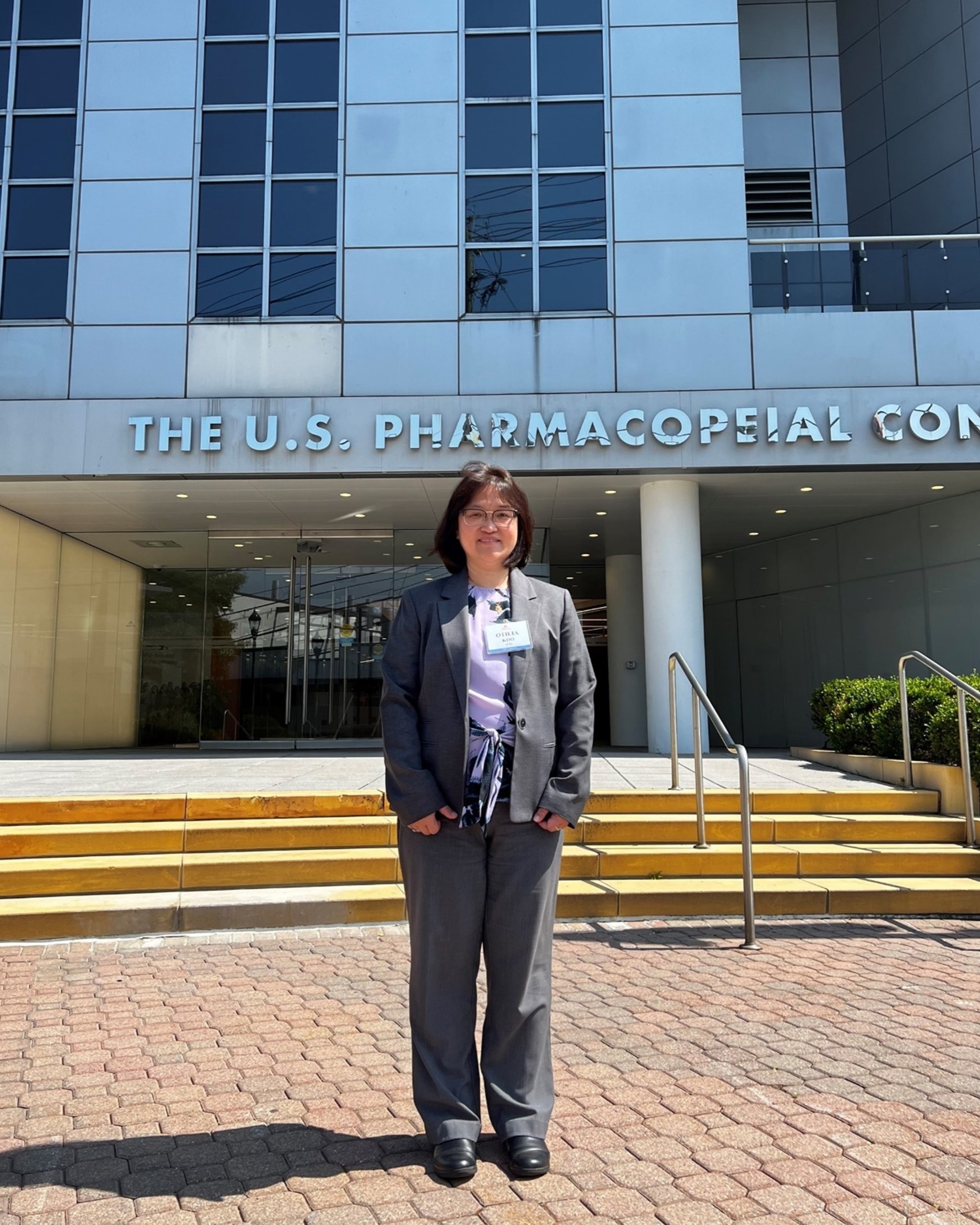
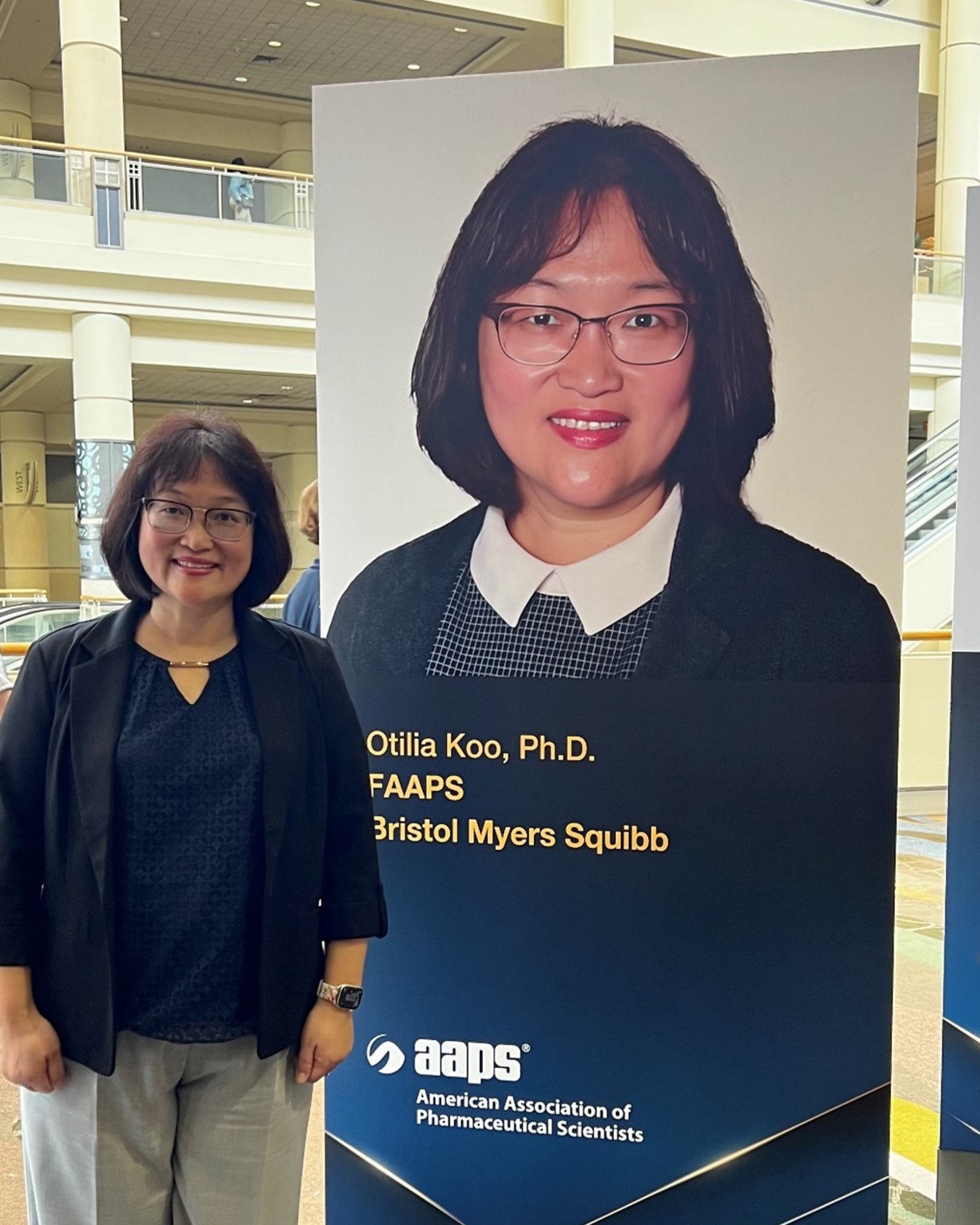
Apart from Dr Otilia’s main work, she also serves as Chair of US Pharmacopoeia (USP) Expert Committee and is a newly minted AAPS Fellow in Oct 2023
You are very active in American Association of Pharmaceutical Scientists (AAPS), and your professional excellence and impact were recently recognized by being elected to Fellow status of AAPS. Could you share about the role that AAPS has played in your career?
OK: AAPS has been my primary scientific association for over 20 years since I was a graduate student at UIC. Through my experience, I have seen how a professional association like AAPS can address the diverse needs of pharmaceutical scientists – students/young scientists/established leaders, academics/industry, US-based/global etc. Throughout the years, I have established relationships with the mentors & mentees I met and also grew professionally through the volunteering opportunities In the AAPS committees. In 2023, I feel honoured and humbled to join the AAPS Fellows as many of my role models in professional excellence and sustained superior impact to improve global health are also AAPS Fellows. In an organization with over 7,000 members in the US and worldwide, being selected in 2023 as one of the eight members elevated to Fellow status is a privilege. It has energized me to continue giving back and volunteering in as many ways as possible to advance pharmaceutical sciences.
I am happy to point out that NUS also has an AAPS Student Chapter and NUS students who join as student members can access the network and offerings of AAPS.
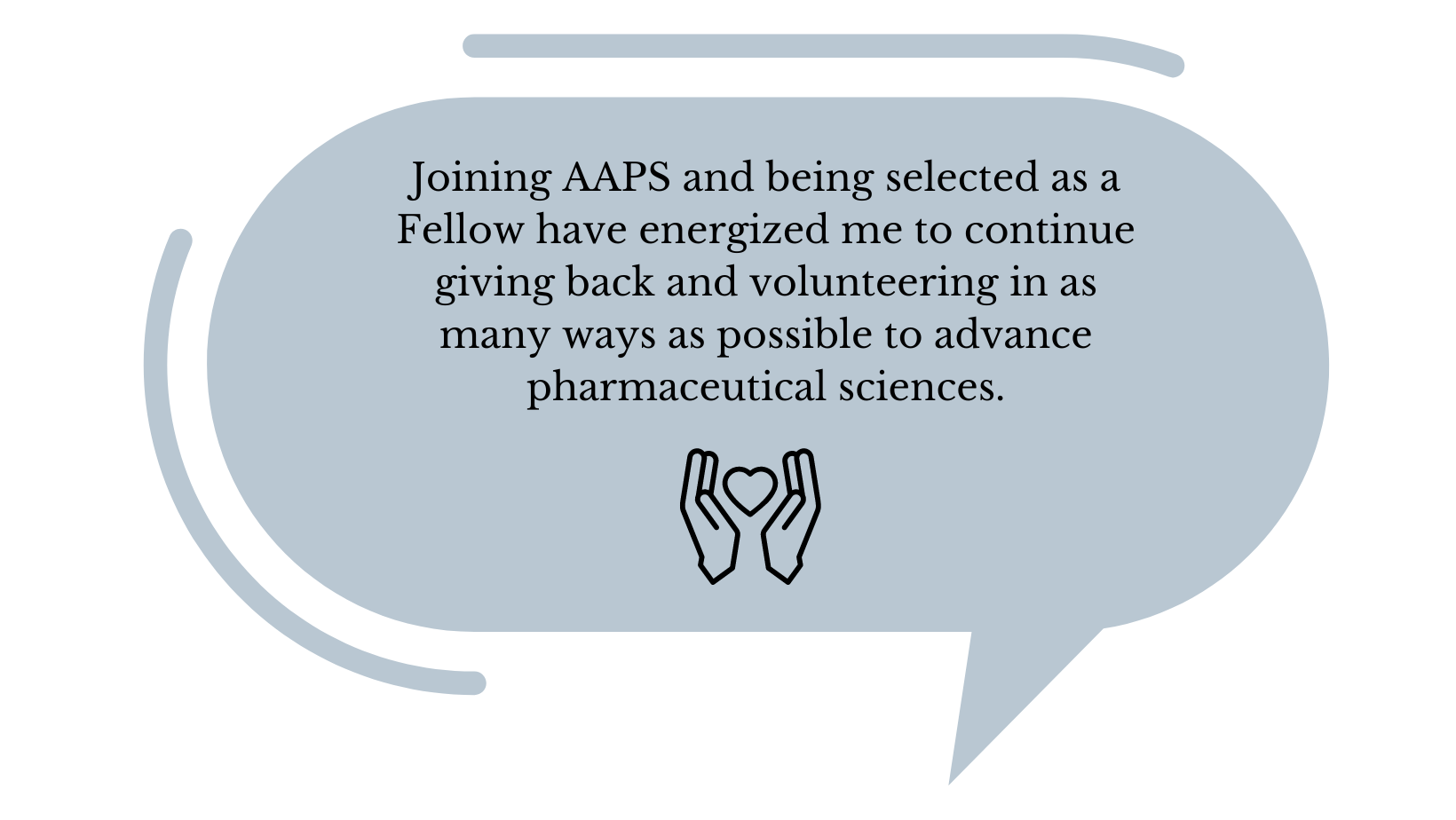
How has working and living in the US been? What do you miss about Singapore?
OK: Working and living in the US has shown me the importance of teamwork, respecting the diversity of opinions and grit to work through challenges. There are some areas that can be different. I miss my family and friends in Singapore, food and warm weather all year round. Thus, I try to be back in Singapore at least once a year with my family so that my children can keep in touch with their Asian culture and roots.
What are some fond memories of your times at NUS Pharmacy?
OK: I remember we were very cohesive as a pharmacy class because we had almost all our lessons together mostly in the same Level 5 classroom and labs in the Pharmacy building S4. I was also the Publication Secretary of our pharmacy class, and a group of us worked as a Publications Committee to raise funds for, write articles and design the “Pharmaceutica” magazine. Finally, the lecturers and staff were all very supportive of our education and gave us much more than just education.
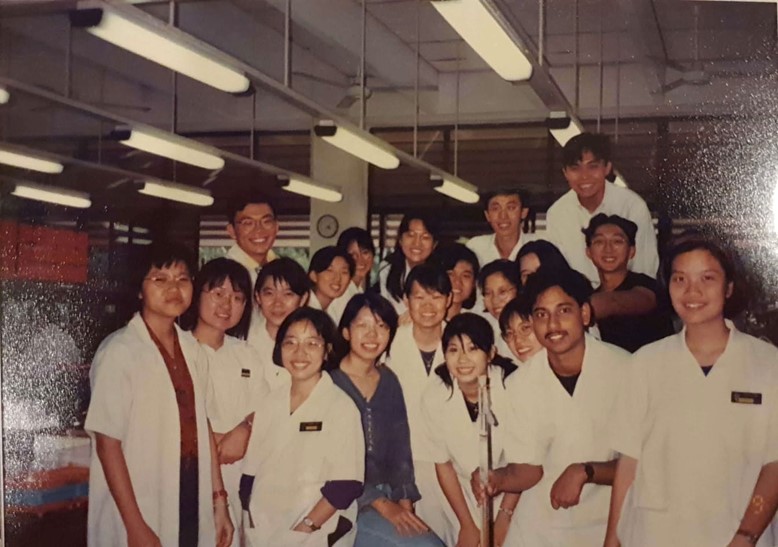
’97 Class photo with fellow Pharmacy classmates
We thank Dr Otilia Koo for sharing with us her rich life experiences and words of wisdom. We wish Dr Koo a fulfilling road ahead pursuing her passion and career in drug development!
Article by Shania Marani (Year 2 Pharmacy student)
Share this article:
Stay connected with NUS Pharmacy!
Receive PharmConnect Newsletters & announcements by NUS Pharmacy.
